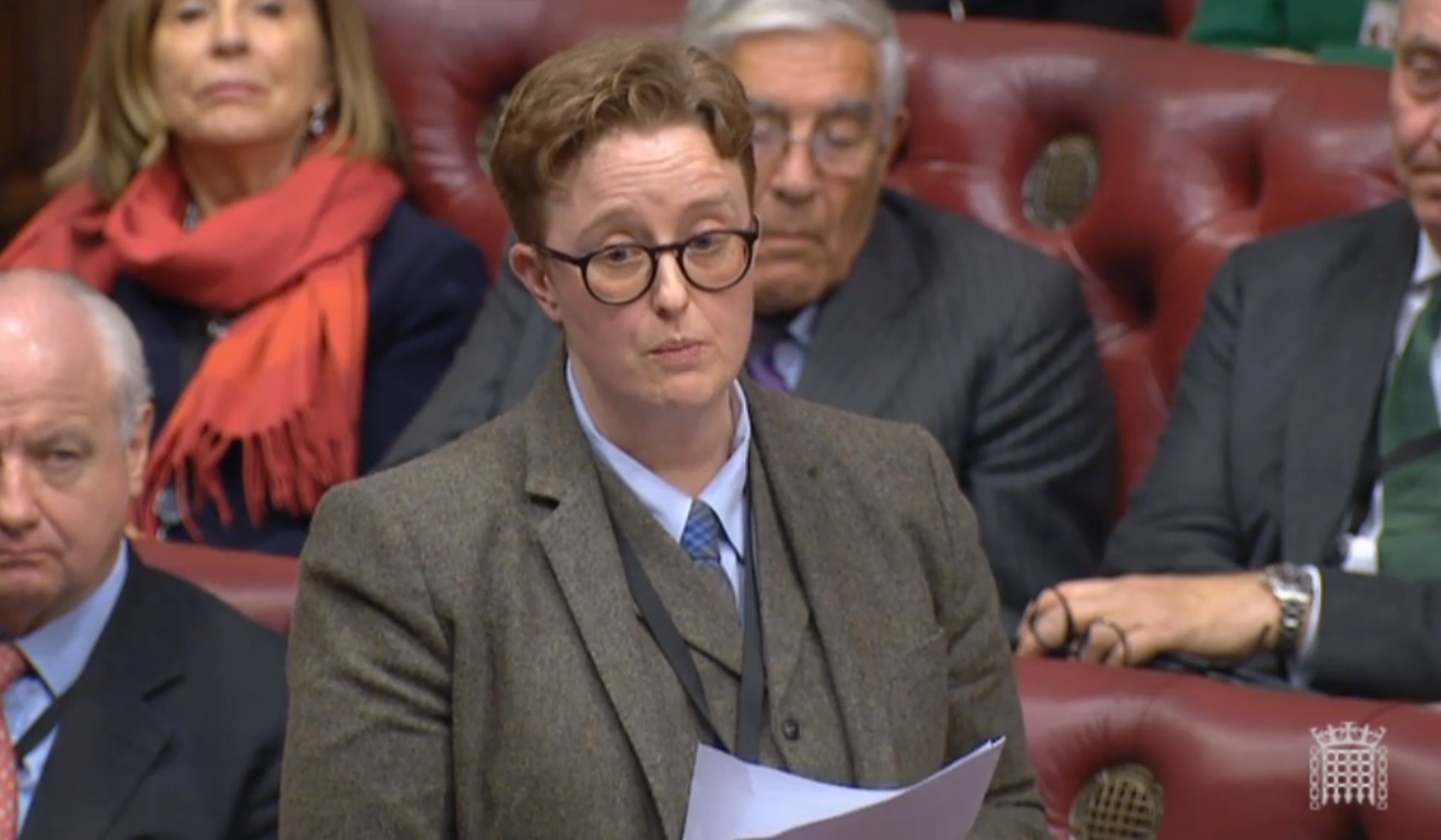Baroness Ruth Hunt – the fourth lesbian, ever, to join the House of Lords – has used her first major interview since taking up the role to advocate for trans rights.
The UK’s laws, she said, are still failing the LGBT+ community. And their biggest failure is to the transgender community.
Her comments come after she used her maiden speech in the House of Lords to highlight the inequality between same-sex marriage or civil partnership and opposite-sex marriage or civil partnership – and how these legal quirks negatively impact on married transgender people who wish to change the legal gender on their birth certificate.
In an interview with The House Magazine, the 39-year-old outlined clearly how reforming the UK’s gender-recognition laws are the most pressing legislative change the LGBT+ community needs.
“Practically speaking, there are legal inequalities around surrogacy, but the big areas of legal change are around gender recognition,” said Hunt, who is baroness of Bethnal Green.
“Our legislation on gender recognition – which was pretty revolutionary in 2004 – is out of date now, and it needs a good overhaul,” she said.
“All parties have committed to that review and the government committed to quite a good consultation, so it’ll come, but I also know that it’s taken a decade to achieve LGB equality in lots of areas, so these things don’t happen quickly by any stretch.”
Ruth Hunt, who rose to public prominence as CEO of LGBT+ charity Stonewall, has a lot of expertise in this area.
Though her five-year reign as CEO will most likely always be best remembered for bringing the fight for trans equality under Stonewall’s remit, in 2015, Hunt had worked at the charity since 2005.
“The Civil Partnerships Act had just passed, and there had been some initial legislation around the right to work. In 2004, that was when legislation first came in that meant you couldn’t be fired for being lesbian, gay, or bi; the first Gender Recognition Act came in 2004,” she said.
“Between 2003 and 2014, there were significant legal changes, including same sex adoption, age of consent, the repeal of Section 28, same sex marriage, but there was also significant culture change.
“A lot of my job was about changing hearts and minds and changing attitudes, particularly with employers, particularly in schools. When I started, we were talking to schools about sixth formers who might be gay; when I left, we were working with over a thousand primary schools on different families, and that in and of itself felt very seismic in terms of the progress we’ve made.”
When it comes to changing hearts and minds, many would argue that there is still a lot of work to be done when it comes to support for trans rights – both from within the LGBT+ community and from society at large.
Ruth Hunt has been criticised for her focus on trans issues in the past. Her response has always been to point out that it had been wrong to exclude the T for so long.
“Stonewall did the trans community a disservice by not including them more regularly and internationally and in virtually every other movement. It is an LGBT-inclusive movement, simply because we get beaten up for the same reasons, we get discriminated against for the same reasons and we have more in common than that which divides us,” she said.
“There’s always been a hostility towards building alliances in ways that don’t necessarily service the individual and I think that’s something we have to learn from in all campaigning, that we do achieve more together, so I’m very optimistic about the future of the LGBT rights movement in this country, simply because it’s a very powerful force.”
